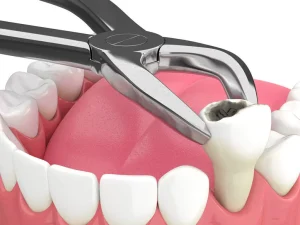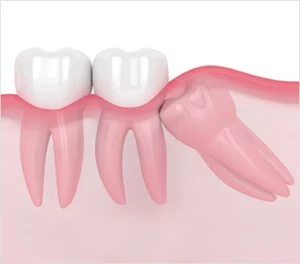Oral Surgery
Oral Surgery
Oral Surgery is broad term used to provide different surgical treatment related to teeth and gums. Various common procedure includes.
The most common type of oral surgery is tooth extraction (tooth removal). An extraction might be recommended if you have severe tooth decay, gum disease (periodontitis), dental trauma or wisdom teeth complications. Sometimes tooth extractions are performed to prepare you for dentures or other prosthetic devices. The dentist will make an incision in your mouth (incisor and canine) and remove the tooth or teeth. A dentist can also make a temporary bridge or denture for you to wear for a few days or weeks to help prevent future problems.
1. Tooth extraction:
It involves removal of tooth that is either problematic or diseased and for orthodontic
need.

2. Wisdom tooth removal:
It involves removal of wisdom tooth (damaged or problematic) either normally or surgically removed. Wisdom tooth removal, like any other dental surgical treatment, takes a few days to recover from, and you may need to take medications to manage the discomfort.
Keep the following guidelines in mind to quicken your recovery:
1. Avoid lying flat to avoid prolonging the bleeding.
2. For the first 24 hours, apply an ice pack to your face.
3. Take it easy. In fact, strenuous activity worsens the bleeding.
4. Start with soft foods and work your way up to solid foods as you recover.
5. Do not drink with a straw. Sucking via a straw might dislodge a blood clot,
causing healing to be delayed.

3. APICOECTOMY:
A common surgical procedure used to save a tooth. This procedure is performed
after root canal treatment when the inflamed tissue or infection in the root tip
region persist. This procedure involves resection of root end tip and infected
tissue. Usually this procedure in performed in dental setups and takes about 45
minutes

